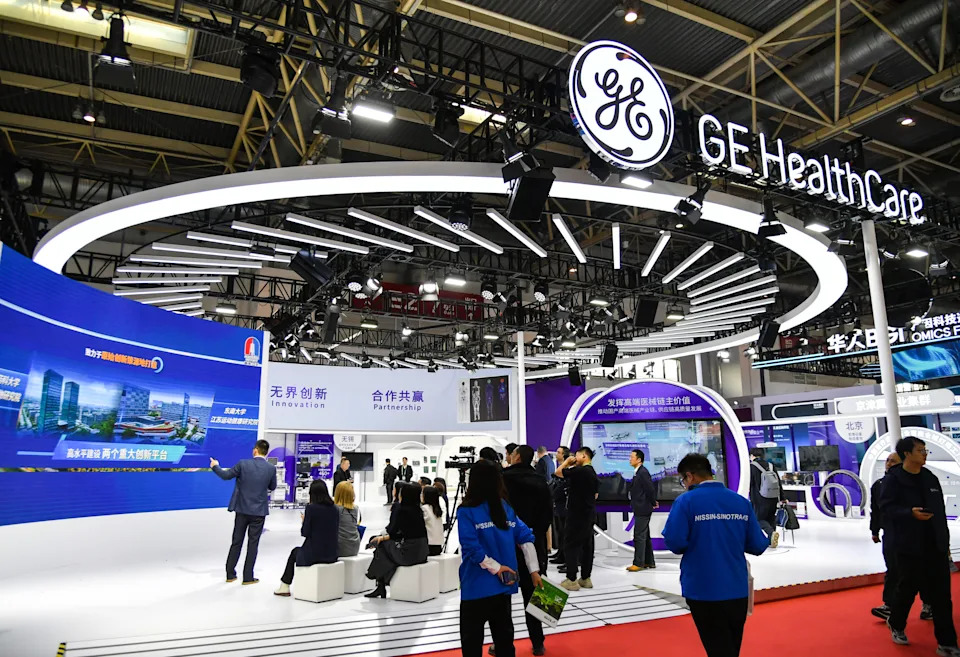News
Medical device stocks slide on Trump tariff news
While pharmaceutical companies are safe for the time being from country-specific reciprocal tariffs announced by President Trump Wednesday, medical devices are not.
That's according to The Advanced Medical Technology Association, or AdvaMed, a trade group representing medical devices. The organization expressed concern about the impact on the sector — but remained hopeful for either an exemption or relief from negotiations between the countries and the US.
"While disappointed in this initial announcement, we look forward to continuing our conversations with the White House to help them understand the important role the medtech industry plays in our health care ecosystem. The medtech industry should be exempted from these tariffs," AdvaMed president and CEO Scott Whitaker said in a statement Wednesday.
Analysts, meanwhile, remained wary about the broader implications for medtech long-term. That's because medical device manufacturing occurs globally. Mexico and the European Union are two key regions for the sector.
Read more: The latest news and updates on Trump's tariffs

JPMorgan analysts wrote in a note to clients that the most relevant reciprocal taxes on imports are the 20% tax on the European Union, 24% on Malaysia, and 10% on Costa Rica, as well as minimally the 34% on China.
The 25% tariffs on Canada and Mexico are also in question. If an exemption or reversal of the tariffs were going to happen, it would have to take place before April 5 for the baseline 10% tariff or before April 9 for the country-specific reciprocal tariffs Trump announced.
"While we think investors will wait to reflect potential impacts in their own models given the many unknowns and moving pieces, this update comes in worse than expected and likely represents at least modest downside relative to what’s been contemplated in current guidance for much of our coverage. We expect companies will provide their initial views on tariff impacts on upcoming 1Q25 earnings calls," the analysts wrote.
Read more: What Trump's tariffs mean for the economy and your wallet
Some of the largest medical device stocks slid more than 2% in early trading Thursday, after a mix of gains and losses in the immediate aftermath of the tariff announcement Wednesday, representing the confusion about the impact on the sector.
GE Healthcare ( GEHC ) was down more than 7% while Intuitive Surgical ( ISRG ) was down more than 2% at the open Thursday.
Yahoo Finance reached out to several companies for comment. Some did not respond or declined to comment, and one said they were monitoring the situation. Others pointed to AdvaMed's statement in response.
AdvaMed's Whitaker previously warned the sector would be impacted and that tariffs could lead to loss of revenue for medtech companies, as reshoring of manufacturing is not an easy task.
"Our industry is heavily regulated: FDA decides what products can be put on the market, and then Medicaid, Medicare, and the VA largely determine the reimbursement for procedures using medtech products. (Tariffs) would lead to less R&D/innovation, layoffs, higher prices for the above-mentioned payors and patients, or all of the above," Whitaker said in a Feb. 1 statement.
"Additionally, moving manufacturing from one facility to a different or new facility requires FDA approval, which makes it difficult in the short term to adjust production to the US," he said.
Though China has a 34% tax on imports, the US isn't a big market for companies based there — conversely, some US and European companies view China as a key market.
Jefferies analysts wrote in a note to clients Thursday, "We think impact will be manageable, with 8% and 15% US sales exposure for Mindray and United Imaging, respectively, and US market is not key growth driver for both."
But experts told Yahoo Finance that if the US-based companies that manufacture overseas have to suddenly compete with China, it will result in cheaper, lower-quality medical devices flooding the market, as hospitals look for ways to cut costs amid the rise in medical device prices. That's because China subsidizes its manufacturing and could reduce the cost to mitigate the tariff impact.
Anjalee Khemlani is the senior health reporter at Yahoo Finance, covering all things pharma, insurance, care services, digital health, PBMs, and health policy and politics. That includes GLP-1s, of course. Follow Anjalee on social media platforms X, LinkedIn, and Bluesky @AnjKhem .

